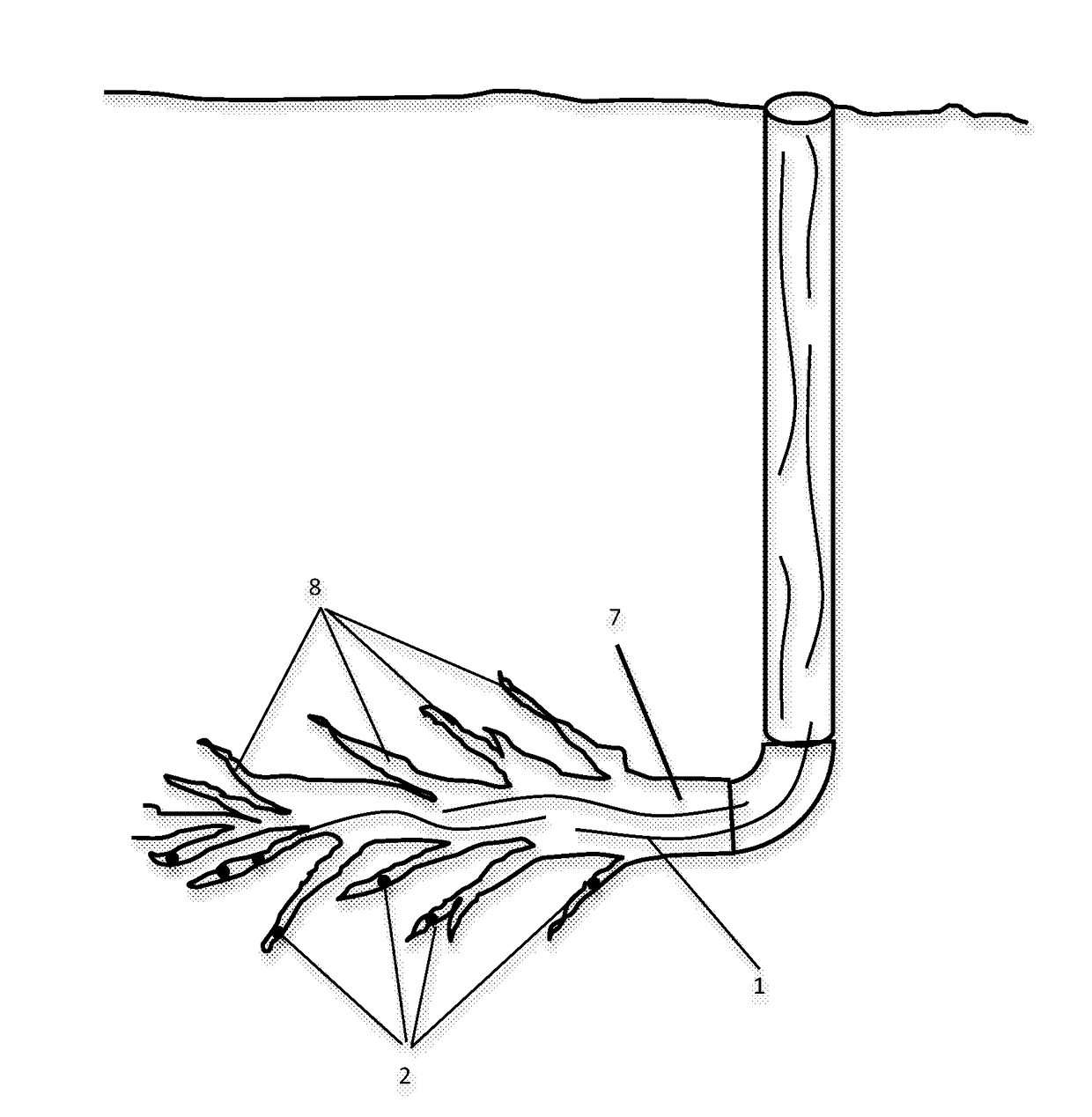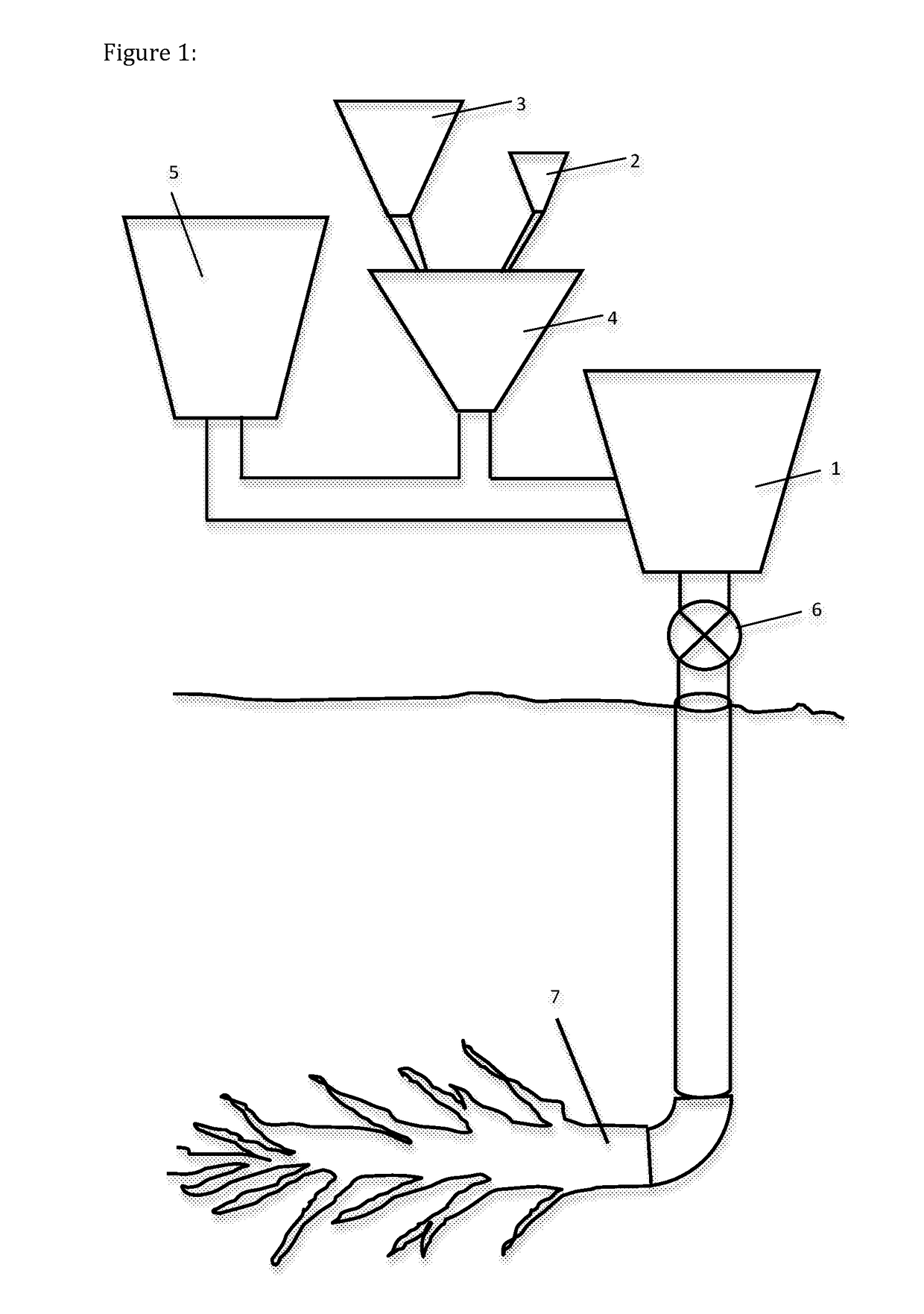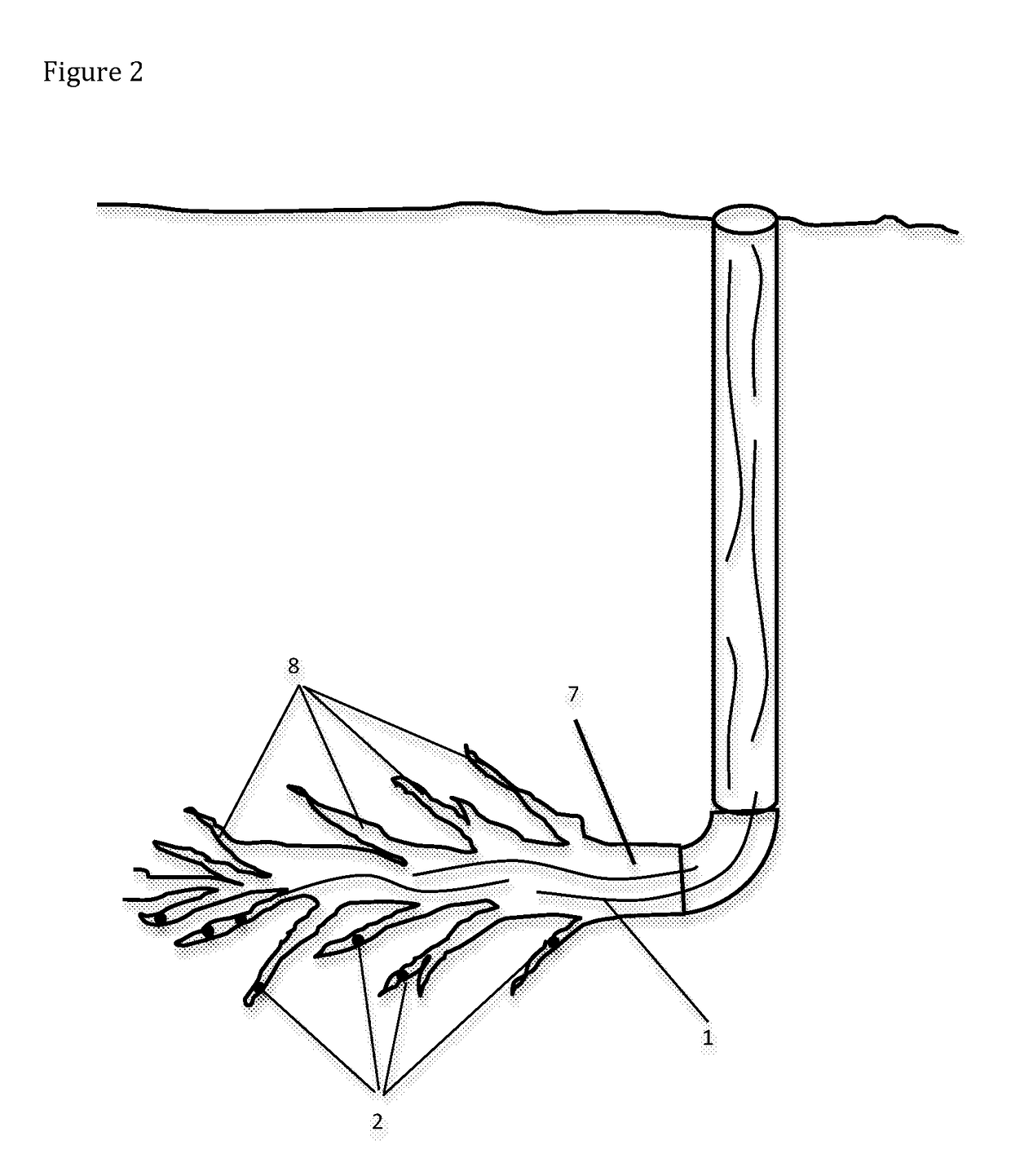Proppant and a viscosified fracture fluid for use in fracturing to extract oil and gas
a technology of viscosification and fracture fluid, which is applied in the direction of fluid removal, borehole/well accessories, chemistry apparatus and processes, etc., can solve the problems of increasing cost, difficult to ensure the breaker, and loss of much of the breaker with the fluid, so as to improve the recovery, improve the flow of liquids, and reduce the cost of hydraulic fracturing
- Summary
- Abstract
- Description
- Claims
- Application Information
AI Technical Summary
Benefits of technology
Problems solved by technology
Method used
Image
Examples
example 1
[0041]An enzyme was immobilized on a proppant using a binding method similar to that disclosed in Le Fevre in U.S. Pat. No. 5,998,183. Briefly, 200 mL of water was mixed manually with 32 mL of 25% glutaraldehyde. To the water / glutaraldehyde solution, 32 grams of proppant (hydraulic fracturing sand), with a mesh size of 20×40, was added. The mixture was mixed in a blender at low speed for three hours and fifty minutes to modify the proppant to produce a glutaraldehyde-bound proppant. The glutaraldehyde-bound proppant was separated from the water / glutaraldehyde mixture by vacuum filtration through a 1 μm filter and dried. An enzyme solution comprising mannanase, cellulase, hemicellulase and other hydrolase activities was mixed in a pH 6.0, 0.01M phosphate buffer in a ratio of 1 part enzyme to 9 parts phosphate buffer to form a dilute enzyme solution.
[0042]Glutaraldehyde-bound proppant was gently mixed with the dilute enzyme solution on a magnetic stir plate for 4 hours to form a propp...
example 2
[0045]Immobilized enzyme was prepared by incubating 2% N-2-(aminoethyl)-3-aminopropyltrimethoxysilane (APTS) in acetone with 16 grams of proppant. The APTS / proppant was then incubated with 40 mL of 2% glutaraldehyde in sodium phosphate buffer, pH 7.0 for 3 hours. The resulting proppant was incubated overnight with 100 mL of a 10% enzyme breaker and borate buffer solution (pH 9.0). The enzyme solution was decanted and the proppant was then washed with distilled water, vacuum filtered and left to dry overnight. The proppant was then baked at 60 degrees C. for 1 hour. Enzyme immobilized using the APTS method was assayed as explained in Example 1.
[0046]Similarly, immobilization with 3-glycidoxypropyltrimethoxysilane (GPTMS) was carried out by incubating 2.5 mL GPTMS in 47.5 mL of 0.01M pH 9 borate buffer with 16 grams of proppant for 2 hours at 60 degrees C. The GPTMS-treated proppant was then washed and dried followed by incubation in 20-50 mL of 0.1M sulfuric acid for 2 hours. The sul...
PUM
 Login to View More
Login to View More Abstract
Description
Claims
Application Information
 Login to View More
Login to View More - R&D
- Intellectual Property
- Life Sciences
- Materials
- Tech Scout
- Unparalleled Data Quality
- Higher Quality Content
- 60% Fewer Hallucinations
Browse by: Latest US Patents, China's latest patents, Technical Efficacy Thesaurus, Application Domain, Technology Topic, Popular Technical Reports.
© 2025 PatSnap. All rights reserved.Legal|Privacy policy|Modern Slavery Act Transparency Statement|Sitemap|About US| Contact US: help@patsnap.com



